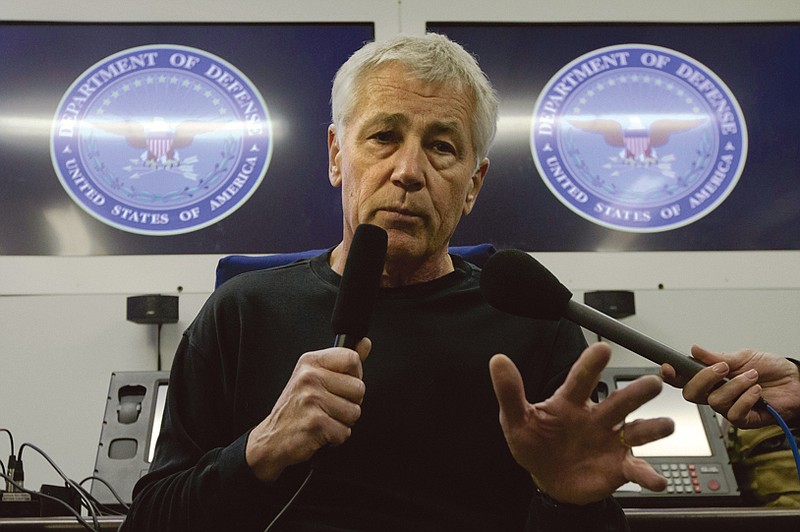SEOUL, South Korea (AP) - Amid escalating threats from North Korea, U.S. and South Korean defense officials will meet over the next few days and discuss whether to extend America's wartime control over the South's armed forces, 60 years after a truce ended the Korean War.
Defense Secretary Chuck Hagel flew to Seoul on Sunday, and said there will be conversations about the possible extension of the 2015 deadline, but likely no decisions will be made.
"We're constantly re-evaluating each of our roles," Hagel told reporters traveling with him. "That does not at all subtract from, or in any way weaken, our commitment - the United States' commitment - to the treaty obligations that we have and continue to have with the South Koreans."
U.S. officials have acknowledged that the South Koreans have informally expressed an interest in delaying the deadline when Seoul is supposed to assume wartime control of the forces that would defend the country in the event of an attack by North Korea.
The target date initially was in 2012, and was pushed back to 2015.
Defense officials said they expect to have discussions about it with the South Koreans that will help map out the way ahead.
Officials said that South Korea's military capabilities have continued to improve, including its ability to communicate and coordinate with the U.S. on missile defense, particularly with American Navy ships deployed to the region.
But the South still needs to strengthen a number of military and intelligence capabilities, including surveillance and reconnaissance as well as its missiles
U.S. control of the forces is a holdover from the Korean War, and America has been trying for years to build South Korea's capabilities. But it has proved difficult to wean the South off its dependence on the U.S. military, particularly as the threat from North Korea has escalated.
Earlier this year, Pyongyang conducted another nuclear test in defiance of U.N. Security Council resolutions. The detonation at a remote underground site was seen as a key step toward the North's goal of building a bomb small enough to fit on a long-range missile capable of striking the U.S.
And, earlier this month a U.S. research institute said that recent satellite images appeared to show that North Korea was restarting its plutonium reactor at the Nyongbyon nuclear facility.
That facility was closed in 2007 under the terms of the six-nation disarmament agreement.
On Friday, South Korean Foreign Minister Yun Byung-se urged the U.N. General Assembly to make a united effort against North Korea's nuclear program, as it has against the use of chemical weapons in Syria.

